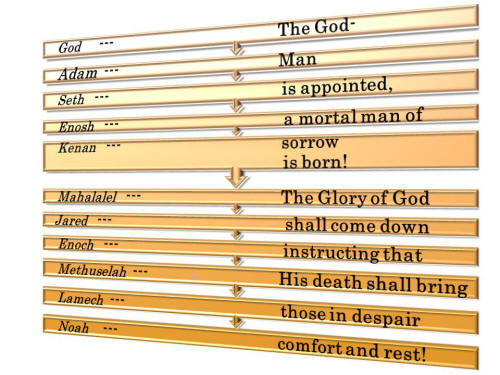...Continued
With respect to the well expressed thought in Post #4: “The Aleph/Tav addition is arguably redundant in it's usage here, unless it is a regularly used as part of Hebrew grammar to clarify objects of verbs (where no clarity is needed)”, let’s look at a few verses regarding redundancy.
Genesis 1:4 (Interlinear Hebrew Old Testament with Strong’s numbers): H7200 saw אלהים H430 And God את H853 האור H216 the light, כי H3588 that טוב H2896 good: ויבדל H914 divided אלהים H430 and God בין H996 divided האור H216 the light ובין H996”
A more literal translation (from the Interlinear Scripture Analyser) is: “and-he-is-seeing Elohim [את 'eth ] the-light that good and-he-is-separating Elohim between the-light and-between the-darkness.”
Genesis 1:21: “and-he-is-creating Elohim [את 'eth ] the-monsters the-great-one and [וְאֵת u-'eth ] every-of soul the-living the-moving which they-swarm the-waters to-species-of-them and [וְאֵת u-'eth ] every-of flyer wing to-species-of-him and-he-is-seeing Elohim that good. ”
Now compare Genesis 1:1: “in-beginning he-created Elohim [את 'eth ] the-heavens and [וְאֵת u-'eth ] the-earth.”
Pedrito seems to detect a consistency of pattern.
==============================================================================================
And regarding “The Aleph/Tav as an isolated "word" is notably found in Zechariah 12:10 right in the midst of the phrases "and they shall look" (Aleph/Tav) "upon me whom they have pierced"
but not in the midst of the phrases that follow it: "and they shall mourn", "for him as one mourneth", "for his only son"....”, four thoughts can be floated.
The first is that out of 6,800+ occurrences, if a person wishes to, a person can find two occurrences on which to place an association with Jesus. (Only two have been mentioned.)
The second is, if those associations are real (and we have seen that in Genesis 1:1, the presence of two occurrences in the same context shows the association to be invalid there), the apostle Paul would certainly been aware of them, and would have used them to show how one occurrence preceded the Law and one was predictive in the context of the Law having been established, and therefore how they both pointed to the temporary nature of the Law. The Writer of Hebrews (if not indeed Paul) as well.
The third is that a more correct translation of the word order is: “...they shall look upon me” (Aleph/Tav) “whom...”.
The fourth is that the use of [את 'eth ] appears to be generally associated with a direct object of a verb, not an indirect object. In Zechariah 12:10 the [את 'eth ] precedes a direct object ("whom"). The absence of an [את 'eth ] preceding "spirit of" which is also a direct object, appears to be related to the structure of that portion of the sentence. Nuances of grammar in languages in which we can communicate, cannot necessarily be projected onto languages we are less familiar with. Less familiar languages can therefore seem inconsistent at times. However, the significance of [את 'eth ] when associated with a direct object, appears to have a solidity of significance.

